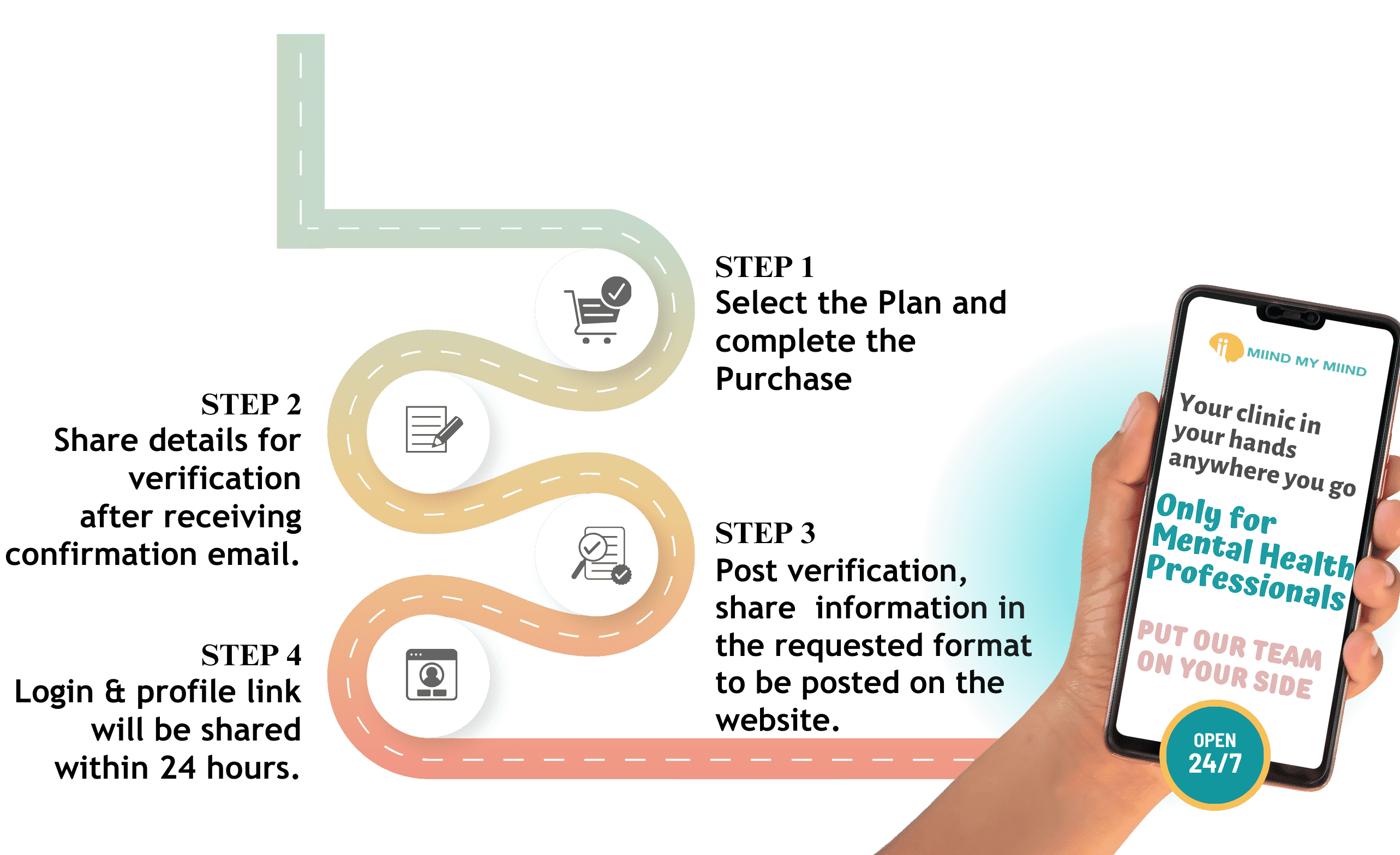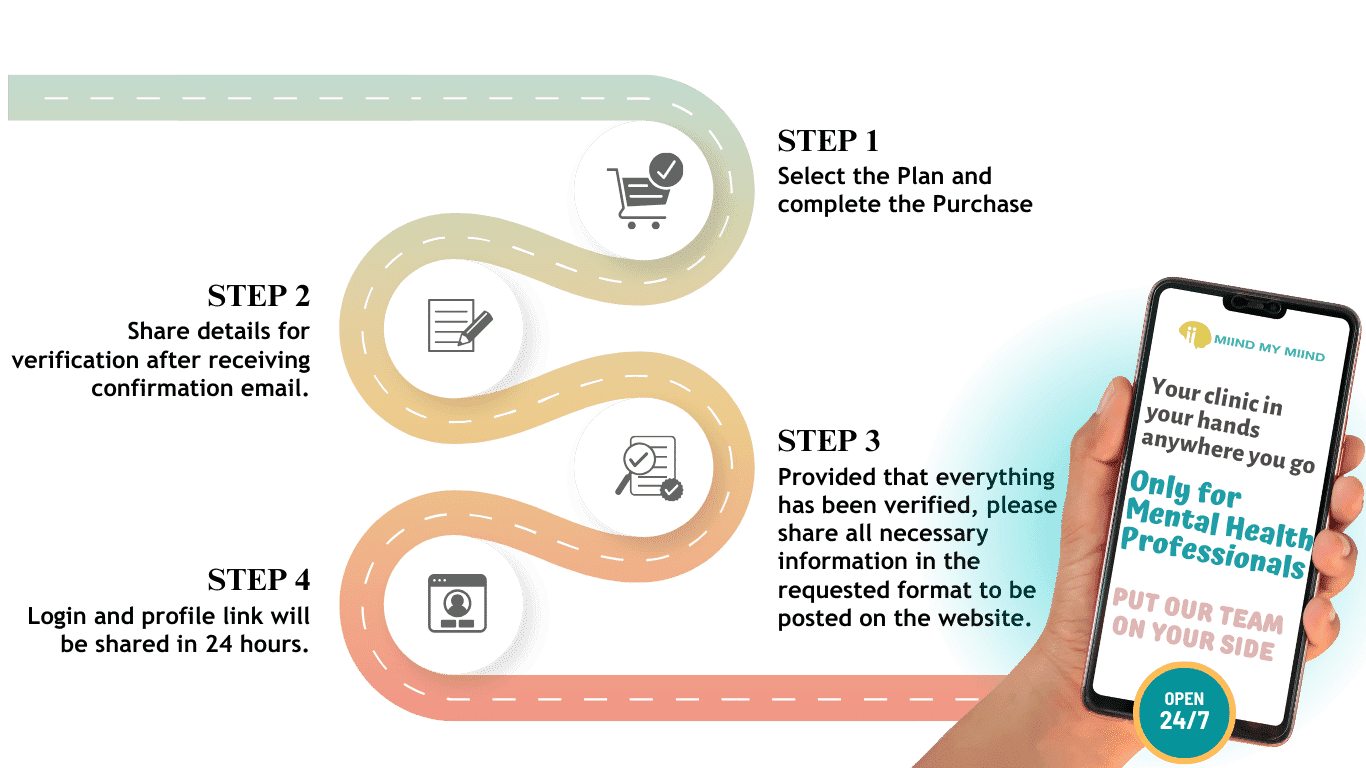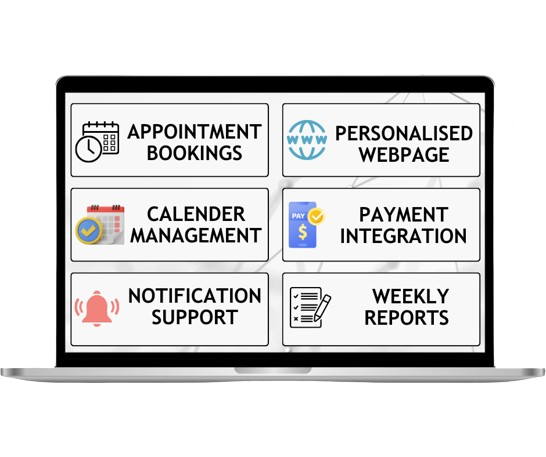Your Path to your Virtual Secratary



Online Personalisation
for your Offline Clinic
Manage your Practice Phygitally with our
CLIENT MANAGEMENT SYSTEM

Add Your Heading Text Here

Add Your Heading Text Here

Add Your Heading Text Here

Add Your Heading Text Here

Add Your Heading Text Here

Expand Your Reach
Get more leads
E Clinic
-
Personalised WebPage
-
Lead generation
-
Profile Display
-
Appointment Bookings
-
Calender Management
-
Payment Integration
-
Weekly Reports
-
Client Records
-
Email/WhatsApp Support
Clinic Listing +
E Clinic
-
Personalised WebPage
-
Detailed Listing
-
Lead generation
-
Profile Display
-
Appointment Bookings
-
Calender Management
-
Payment Integration
-
Weekly Reports
-
Client Records
-
Email/WhtasApp Support
-
Publish your Articles
Transform Your Practice with Our Comprehensive E-Clinic Platform
Our E-Clinic is meticulously designed to cater to the unique needs of mental health practitioners, offering a suite of powerful, intuitive features.
Expand Your Reach with a Professional Listing: Get noticed in the digital space with our dedicated listing services. Your profile will be featured on our website, making it easier for potential clients to find and connect with you.
Seamless Appointment Booking: Simplify your scheduling with our user-friendly appointment booking system. Manage your time effectively, reduce no-shows, and provide your clients with the convenience of booking appointments online, anytime.
Efficient Calendar Management: Stay organized with our integrated calendar. It allows you to view and manage your schedule in real-time, ensuring you never miss an appointment or overbook yourself.
Personalized Login Dashboard: Each mental health professional gets a unique, secure login dashboard. It’s your one-stop hub for managing appointments, client information, and more, all tailored to your specific needs.
Track Your Revenue with Ease: Our system provides comprehensive revenue tracking tools. Monitor your earnings, manage invoices, and gain insights into the financial health of your practice with just a few clicks.
Integrated Payment System: We offer a hassle-free, integrated payment system, making it easy for your clients to pay for consultations. This secure system ensures timely payments and a smooth transactional experience.
Stay Connected with Notifications: Never miss an important update with our customized notification system. Get alerts for new appointments, client messages, and other crucial information.
Robust Leads Support: Grow your practice with our leads support feature. Attract new clients, nurture leads, and expand your client base effortlessly.
Our platform is more than just a tool; it’s a partner in your professional journey. With features designed to address every aspect of your practice management, you can focus more on what you do best – providing exceptional mental health care.
FAQ
How can mental health professionals manage their calendars with Miind My Miind?
Once the profile is setup on Miind My Miind you can login and mark your free slots on the calendar. The client would then pick up a slot as per your availability.
How does appointment scheduling work?
To book an appointment the client will receive a link where they can select their preferred day, date, and time. After the payment their appointment is booked. The Mental health Professional will be notified via Email/Whatsapp
Is there a secure payment gateway for payments?
Yes, we accept payment from a secured gateway and the appointment can only be confirmed once the payment is done.
How would E Clinic help?
Miind My Miind acts like your virtual secretary and gives you a platform to help you grow. E Clinic is a way to both online and offline clients. Once your profile is set up the clients can book an appointment with you as per your availability. It is a hassle-free process!
Will the profile be set up on the platform?
Absolutely! Your profile will be set up on the platform where we will mention all your details like qualification, experience, and specialization.
How do the support tools help mental health practitioners?
Our psychometric tests can assist in conducting assessments and providing therapy. Psychometric tests can help in diagnosing and tracking their progress. The journals would benefit them to express themselves and get to know the emotions they feel at core.

